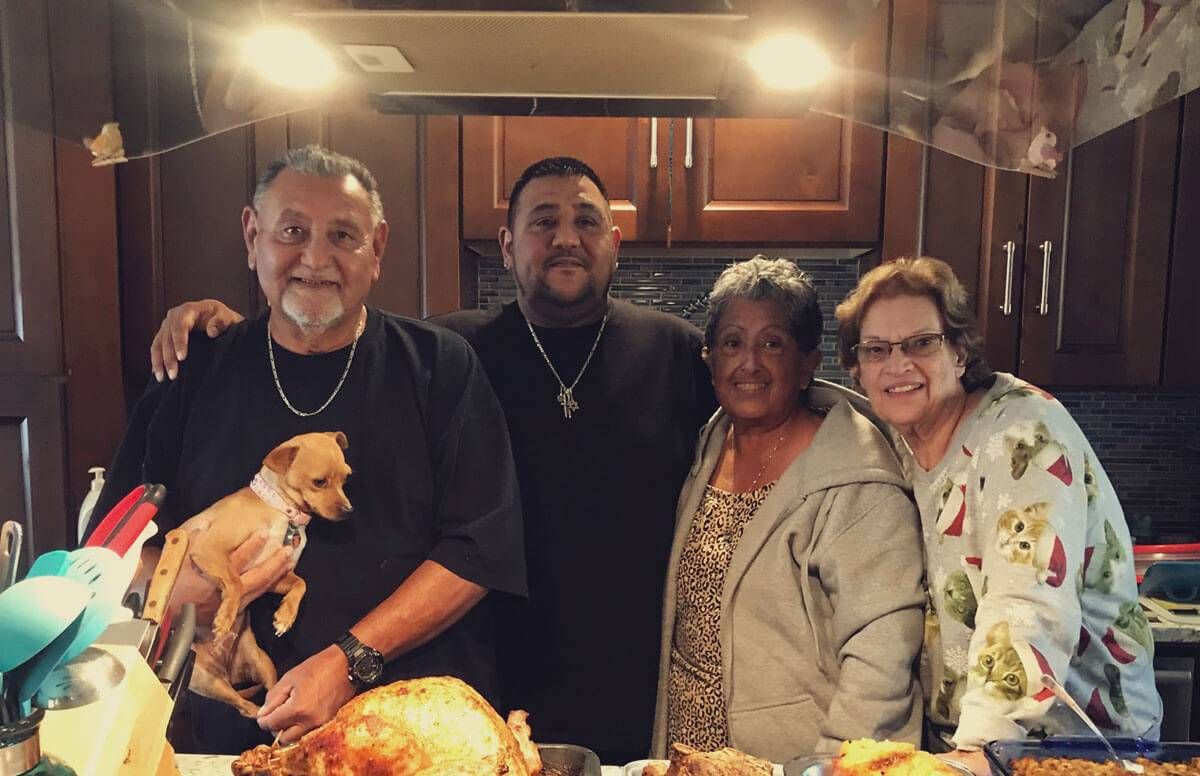Ways to Be Grateful Every Day
Celebrating what you have, and not envying what you lack, is the key
Thanksgiving is the day meant to serve as a reminder to be thankful for everything we have and to be grateful to the individuals who bring love, friendship and fulfillment to our lives.


Kristi Nelson, the executive director of A Network for Grateful Living, believes gratitude should be part of every day. As she says, even though we have abundance in many areas of our lives, we live in a society that focuses on scarcity.
"Society feeds a sense of lack," says Nelson, 60, who lives in Western Massachusetts. "There is this prevalence of imagery and messages that 'everyone has what you don't have.'"
During the holidays, social media has the tendency to feed this monster more than ever. "The message is 'other people are having the kind of Thanksgiving [or other holiday] I wish I was having,'" she says. "This really causes low-grade suffering among people."
The Work of Brother David
A Network for Grateful Living is a global organization with a host of online resources fully devoted to gratitude; its vision is "a peaceful, thriving and sustainable world, held as sacred by all." Several thousand people visit its website each day, representing more than 240 countries and territories.
The co-founder, and now senior adviser, of A Network for Grateful Living is Brother David Steindl-Rast, OSB, who has received worldwide recognition for his work on behalf of peace, justice and living gratefully.
"It's not happiness that makes us grateful, it's gratefulness that makes us happy."
Brother David, now 94, was one of the key figures in the House of Prayer movement which began in the 1970s, composed of a group of more than 200,000 individuals from religious orders in the United States and Canada. He's the author of several books including Belonging to the Universe and A Listening Heart and continues to travel around the world giving lectures.
On the Grateful Living site, there are multiple articles by Brother David, including this popular one called "The ABCs of Grateful Living: A Practice" in which he goes through the alphabet one letter at a time, tying a word that comes to mind to the topic of gratitude: A is for Amazement, B is for Beauty … and P is for Potholes. He writes, "Potholes in the road give me the opportunity to slow down. That is a great gift."
The Difference Between Gratitude and Gratefulness
Nelson, a Stage 4 cancer survivor for more than 25 years, has spent a large portion of her life, in both a personal and a professional capacity, celebrating the practice of grateful living.
One of the topics she frequently addresses is the difference between "gratitude" and "gratefulness."
"Gratitude is something we experience as a happy response when something goes our way," Nelson says. "But really, that can be a fleeting transaction."
"When you are grateful," she continues, "you embody gratitude. And when you choose to live in a state of being grateful, you become more cognizant, you celebrate what you have and not what you lack."
As Nelson explains: "It's not happiness that makes us grateful, it's gratefulness that makes us happy."
Gratitude Through Challenges
Growing older can bring its share of changes and challenges, making it even easier to focus on what we might be lacking. One place where this may be noticed daily is a loss of the good health we used to have. But here, too, is an opportunity for grateful living.
"Sometimes we become so focused on the ills of the body that we define ourselves by what isn't working, instead of what is," Nelson says. "And what's wrong will always be dwarfed by what is right."
Another challenge is the loss of a loved one. Nelson lost her mother earlier this year, after tending to her in hospice for six months. While living through the pain of her mother's death, Nelson sees a path to live the rest of her life with love and honor for her mom.
"There is a purposeful way to be in relationship with loss," she says. "We can say to ourselves, 'I am still alive, I have opportunities.'"
Moreover, Nelson believes that living gratefully is the best possible way for us to honor those we have loved.
"They want us to experience joy. They want us to live — what would they have given for another day, another hour?" she says. "We have that time."
Reflecting on What Makes Us Grateful
Nelson suggests that making time for daily reflection can lead us to be grateful for the experiences of our past. It just depends on the questions we ask ourselves.
"Think back about the times where you've made the best of a difficult situation. Think about the times you have shown courage, and the times you've shown gratitude — for what, to whom?" she says.
"It's never too late to live gratefully."
But there are also many opportunities for grateful living right now, Nelson says, which require us to truly be present, not dwelling on how our lives will change as we age.
"A source of great suffering can occur when we live the limitations now that aren't ours to live," Nelson explains. "One day, our lives will become smaller and more limited. This should compel us to do the things now that we want to be able to do. Live how we want to live. Participate in the activities that we want to do."
She adds, "It's never too late to live gratefully."
Giving Thanks in An Authentic Way
However you will be celebrating Thanksgiving this year, Nelson encourages you to "fill your day with things that make you grateful and express (to others) how grateful you are."
A simple way to do this is to spend the week of Thanksgiving writing two cards a day, sending them to people in your life for whom you are grateful. (A Network for Grateful Living offers e-cards on its site.)
"Express your thanks. Be a wellspring of gratitude," Nelson says. "This can really create a ripple effect because when others are inspired by our actions, they may take action, too."


